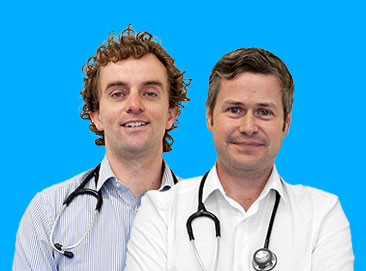Introduction
With an Autumn Statement in last year, a Scottish Government Budget in December 2023 and a UK Budget in March just gone there have been multiple changes made to the UK tax system for the tax year ended 5 April 2025. Other changes have been made previously but are only just taking effect and of course a new tax year means new allowances, such as the ISA allowances, are refreshed. Below we run through some of the key changes that took place on 6 April 2024 when the new tax year came in.
National Insurance
The biggest changes for the new tax year relate to National Insurance with these changes being the centrepiece of the UK Government’s 2023 Autumn Statement and March 2024 Budget.
For employees in the UK, the headline rate of Class 1 National Insurance Contributions had already been cut from 12% to 10%. As of 6 April 2024 this has been reduced further to 8%.
For the self-employed, including any self-employed GP locums and GP partners, the headline rate of Class 4 NIC has been reduced from 9% to 6% from 6 April 2024. Also, Class 2 NIC has been changed significantly and abolished for most of the self-employed. Class 2 NIC was set as a weekly amount of £3.45 that the self-employed usually had to pay as a way to get an NIC contribution credit towards their state pension even if their profits were too low to pay NIC or if they made a loss. Effectively, from 6 April 2024, a person with profits in excess of £12,570 no longer has to pay class 2 NIC. Where profits are at least £6,725, the person continues to receive access to contributory benefits (e.g. the state pension) and where profits are under £6,275 (or a loss is made) the person can make voluntary class 2 NIC at the rate of £3.45 per week in order to get access to contributory benefits.
Income Tax
In terms of income tax for doctors, the biggest changes coming into effect from 6 April 2024 affect Scottish taxpayers after the Scottish Government’s Budget on 19th December 2023. These changes mainly affect high earners.
Firstly a new tax band has been introduced from 6 April 2024 for those earning between £75,000 and £125,140 with a corresponding tax rate of 45% called the Advanced Rate. With this new rate there are now six income tax rates in Scotland. Secondly, the top rate of income tax in Scotland which applies to incomes over £125,140 has been increased from 47% to 48%. At the lower end both the starter band and the basic band thresholds have been increased in line with inflation while the rest have been frozen. The Scottish income tax rates and thresholds are now:
Scottish income tax rate | Scottish income tax band |
|---|---|
| Scottish Starter Rate – 19% | £12,571 – £14,876 |
| Scottish Basic Rate – 20% | £14,877 – £26,561 |
| Scottish Intermediate Rate – 21% | £26,562 – £43,662 |
| Scottish Higher Rate – 42% | £43,663 – £75,000 |
| Scottish Advanced Rate – 45% | £75,001 – £125,140 |
| Scottish Top Rate – 48% | >£125,140 |
Moving away from Scotland, for all taxpayers in the UK, the dividend allowance has been reduced further. In the tax year there is a certain level of dividends which can be received without any income tax being due (strictly income tax is charged at 0%). This is £500 for the 2024/25 tax year having been cut from £2,000 in 2022/23 to £1000 in 2023/24 to £500 in this new tax year. Some estimates, including those from HMRC suggest that this will affect up to 1.8 million individuals receiving dividends.
In potentially better news, for 2024/25 onwards there has also been a change to the income threshold for filing a self-assessment tax return which has now been abolished. Previously if your income exceeded £100,000 then HMRC would require you to file a tax return and this had been raised to £150,000 for 2023/24. This has now been abolished so if this was the only reason a taxpayer had to submit a self-assessment tax return they will no longer be required to do so. The government expects this change to remove the requirement for up to 338,000 taxpayers to submit a tax return.
Join 30,000 doctors and receive free, exclusive, financial CPD for doctors in your inbox.
Medics’ Money is run by doctors and finance experts, for doctors. Our free financial CPD gives you all the knowledge you need to take control of your finances.

Capital Gains Tax
There are two changes affecting Capital Gains Tax:
Firstly, the annual tax-free allowance for capital gains for individuals has been reduced again to £3,000. It was over £12,000 in the 2022/23 tax year but the 2022 Autumn statement reduced it to £6,000 last tax year and now £3,000 as part of the Government’s desire to raise extra tax revenue.
Secondly the Government surprised everyone in the recent Budget by reducing the higher rate of capital gains tax on residential property gains from 28% to 24%. This may be of interest to those of you who own more than one residential property.
Other Changes
Several other changes came into effect as of 6 April 2024. One of the most significant relates to the high-income child benefit charge, which was originally introduced in 2013 and has never been changed previously, that claws back child benefit from those higher earners who are receiving it. As announced in the recent Spring Budget the charge now applies where the income of the recipient of child benefit or their partner’s income is £60,000 or more, increased from £50,000. Child benefit is withdrawn at the rate of 1% for every £200 of income in excess of £60,000 and up to £80,000. Child benefit is therefore clawed back in full where the person’s income is £80,000 or more (this has been increased from £60,000). By April 2026, the government is aiming for the charge to be administered on a household basis rather than an individual basis. Don’t forget that if you are entitled to claim child benefit but don’t want to, because you would then have to repay it under this charge, it’s better to opt out on the child benefit claim form than to do nothing at all.
In 2023, the government announced a major extension of childcare support in England. The first phase of this scheme is being rolled out from April 2024, when eligible working parents of two-year-olds will be entitled to 15 hours of childcare a week, typically for 38 weeks a year. From September 2024, 15 hours childcare support will be extended to eligible working parents with a child from 9-months-old. For completeness, from September 2025, support will reach 30 hours for eligible working parents with a child from 9-months-old up to school age.
In terms of pensions, the lifetime allowance (LTA) is abolished from 6 April 2024. Ahead of this change, legislation was introduced to prevent individuals from becoming liable to a new LTA charge from 6 April 2023 onwards but now the Lifetime allowance itself is gone. As many of you will know the Labour party have committed themselves currently to bringing the LTA back in so who knows how long this will last for. A cap of £268,275 (25% of former LTA) applies to pension commencement lump sums.
Regarding Individual Savings Accounts (“ISAs”), firstly the £20,000 ISA allowance will have been refreshed as of 6 April 2024 so we all have a new allowance. Up to £4,000 of this £20,000 can be put into a Lifetime ISA if you are eligible to do so. The £9,000 Junior ISA allowance has also been refreshed from 6 April 2024. Secondly, new to this tax year, for the first time you can set up multiple cash or stocks and shares ISAs in the same tax year, previously you could only set up one of each type.
Some other changes that might be of interest include:
- From April 2024, all non-UK charities are no longer eligible for UK charitable tax reliefs.
- The VAT threshold at which a business must register for VAT has been increased to £90,000
- The Inheritance Tax annual exemption of £3,000 has been refreshed
Everything in this blog is correct at the time of writing – 4 July 2024 will see a general election and consequently very likely a new Government. We will therefore have to see what this new Government does in relation to the above and the UK taxation system in general.
What medical school didn’t teach us about money
“What medical school didn’t teach us about money” will give doctors a step by step plan to transforming your financial future. Enter your details to download your copy now









